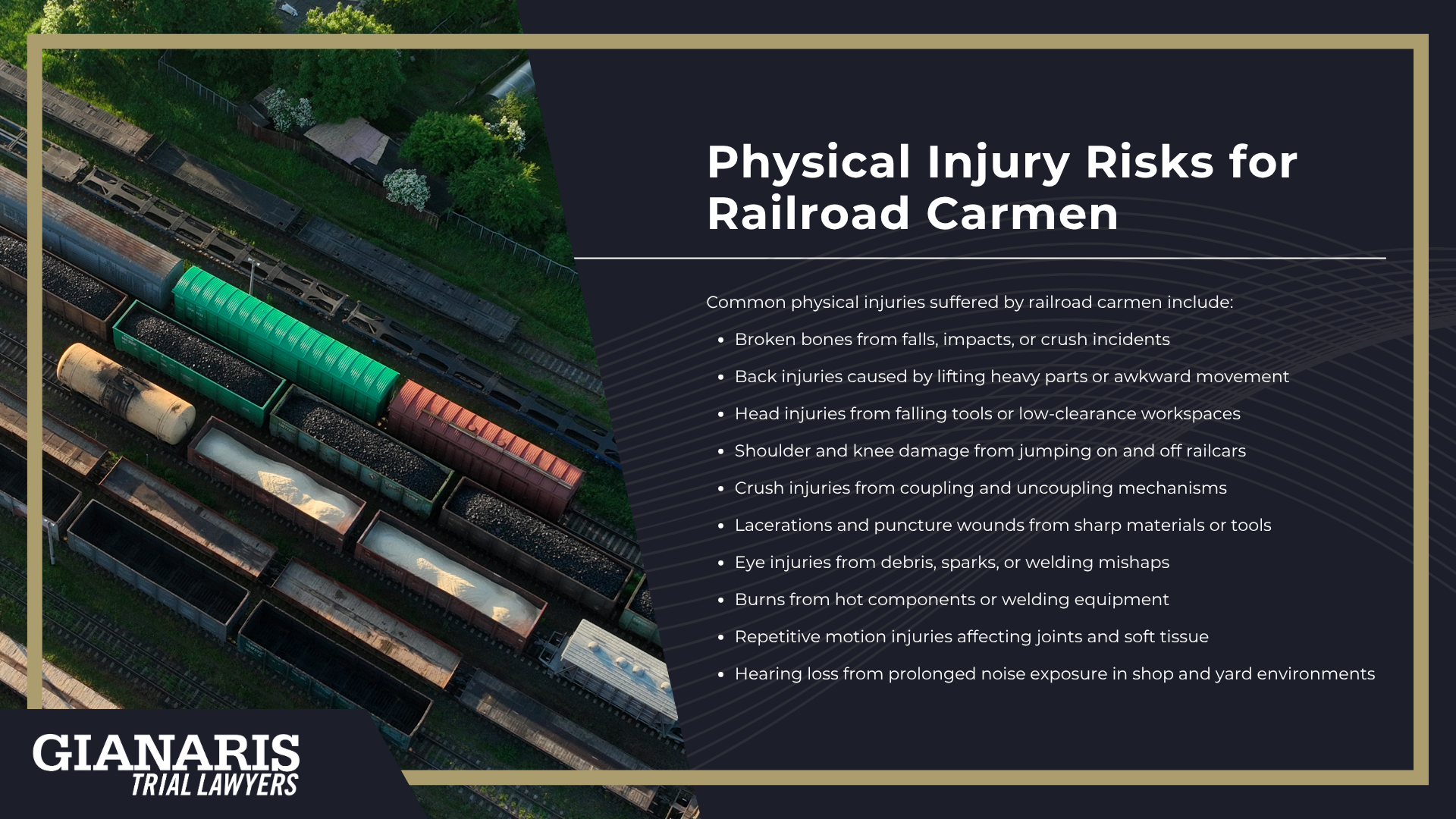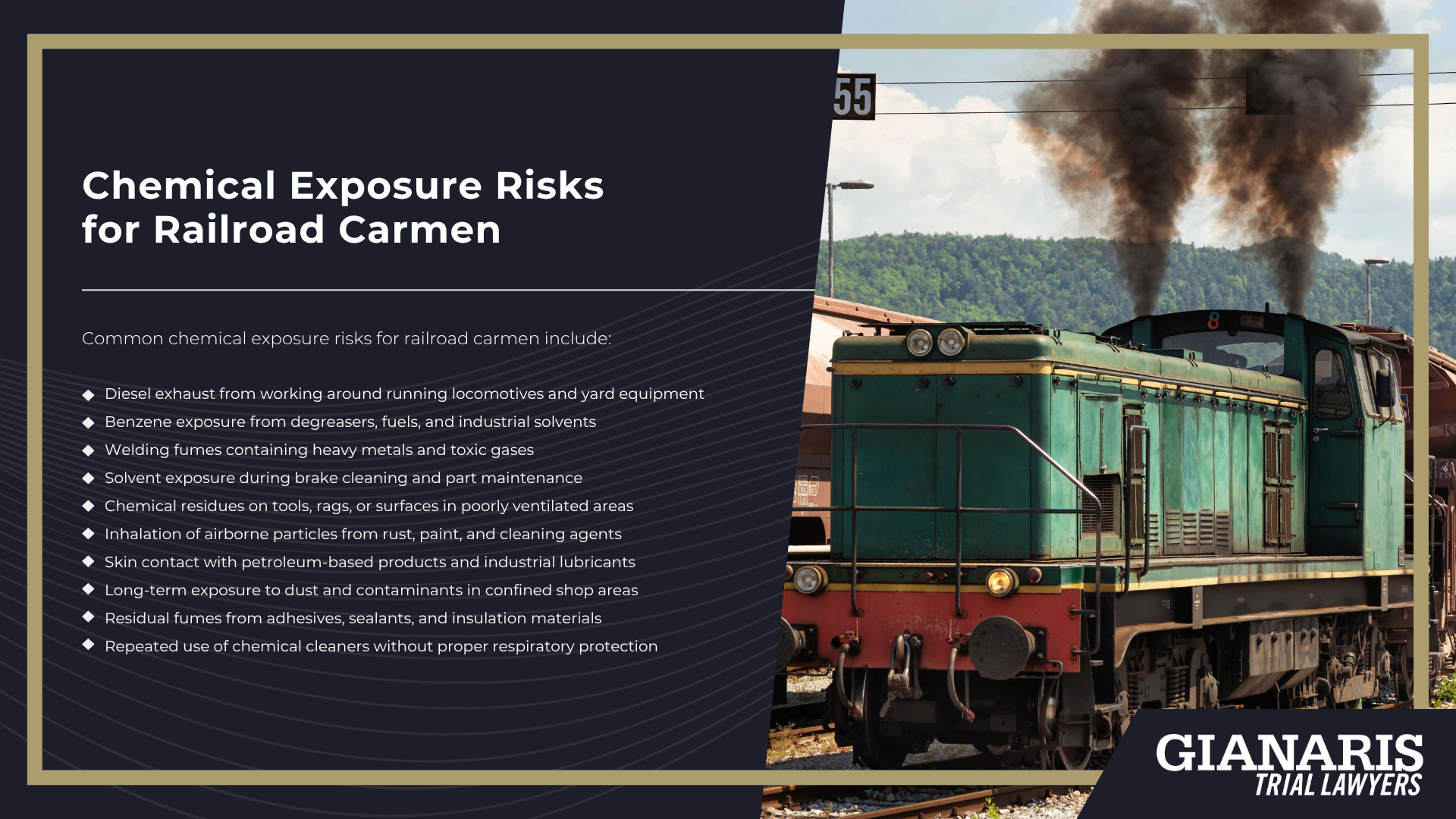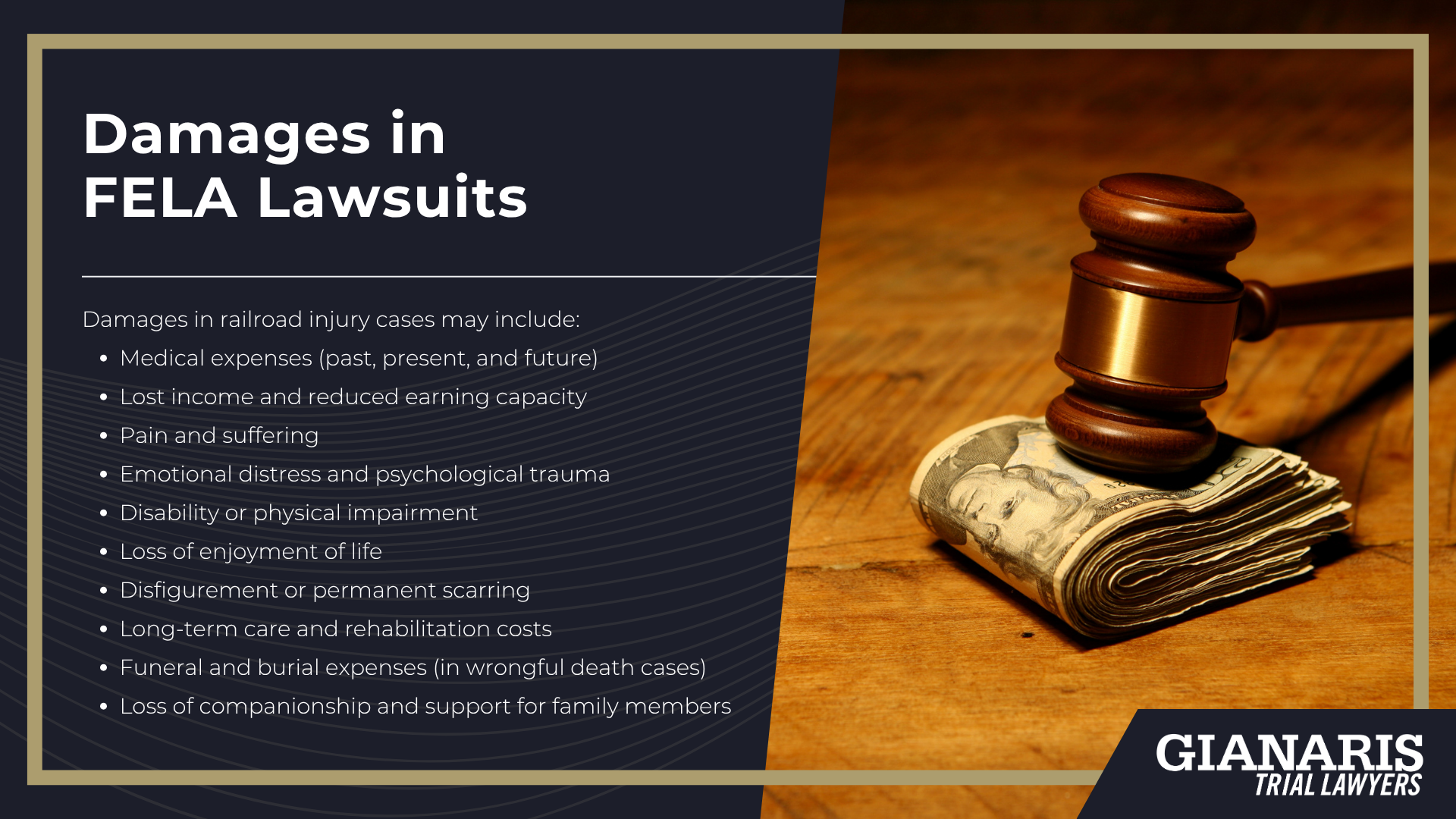Railroad carmen are tasked with inspecting, servicing, and repairing railcars: jobs that demand constant attention to detail, physical effort, and hands-on interaction with complex equipment.
These workers often operate in rail yards, under railcars, or in tight spaces where moving parts, pressurized systems, and heavy tools are part of the daily environment.
The nature of the work exposes carmen to hazards that go beyond routine wear and tear, creating real risks of being injured on the job, especially when safety procedures are overlooked or equipment is outdated.
Their duties include everything from air brake testing to welding and replacing couplers, which puts them in direct contact with hazardous materials and mechanical dangers.
The work is physically intense and often performed under time constraints, in unpredictable weather, or around active rail operations.
Carmen must rely on the assumption that their tools, protective gear, and environment meet industry standards.
But when that fails, the consequences can be life-changing.

At Gianaris Trial Lawyers, we understand the full scope of what carmen do and the toll it can take on the body over time.
We also know that many of the injuries and illnesses they suffer are not simply “part of the job,” but preventable outcomes of an employer’s failure to maintain a safe workplace.
Our firm is committed to helping railroad carmen who have paid the price for unsafe conditions recover what they’re owed under the law.
Physical Injury Risks for Railroad Carmen
Railroad carmen frequently work in hazardous conditions involving heavy equipment, moving railcars, and physically demanding tasks that increase the likelihood of serious injuries.
Many suffer harm while inspecting or repairing undercarriages, replacing components, or operating tools in confined, high-risk environments.
Injuries often occur due to poor lighting, inadequate training, or malfunctioning equipment, each of which can be tied to employer negligence.
Whether it’s a fall from a railcar, a crush incident, or years of repetitive strain, these injuries can result in long-term disability or require extensive medical treatment.
A qualified FELA attorney can help injured carmen pursue compensation if their injuries stem from unsafe working conditions.
At Gianaris Trial Lawyers, we represent railroad carmen who’ve suffered the following common injuries on the job.

Common physical injuries suffered by railroad carmen include:
- Broken bones from falls, impacts, or crush incidents
- Back injuries caused by lifting heavy parts or awkward movement
- Head injuries from falling tools or low-clearance workspaces
- Shoulder and knee damage from jumping on and off railcars
- Crush injuries from coupling and uncoupling mechanisms
- Lacerations and puncture wounds from sharp materials or tools
- Eye injuries from debris, sparks, or welding mishaps
- Burns from hot components or welding equipment
- Repetitive motion injuries affecting joints and soft tissue
- Hearing loss from prolonged noise exposure in shop and yard environments
Chemical Exposure Risks for Railroad Carmen
Alongside the risk of traumatic injury, railroad carmen face significant danger from toxic substances encountered during routine maintenance and repair work.
Tasks involving brake components, welding, degreasing, or working near idling locomotives can result in prolonged exposure to dangerous chemicals.
Over time, this type of on-the-job injury can lead to chronic respiratory conditions, cancers, and other serious health issues.
Many carmen are exposed to diesel exhaust, industrial solvents, and benzene exposure without adequate protection or warnings.
These risks often go unaddressed by negligent railroad employers who fail to provide proper ventilation, training, or personal protective equipment.
When exposure continues for years, even low levels of toxic chemicals can cause permanent and life-threatening damage.
Gianaris Trial Lawyers helps carmen hold railroad companies accountable for unsafe chemical exposure through detailed case investigations and railroad cancer lawsuits.

Common chemical exposure risks for railroad carmen include:
- Diesel exhaust from working around running locomotives and yard equipment
- Benzene exposure from degreasers, fuels, and industrial solvents
- Welding fumes containing heavy metals and toxic gases
- Solvent exposure during brake cleaning and part maintenance
- Chemical residues on tools, rags, or surfaces in poorly ventilated areas
- Inhalation of airborne particles from rust, paint, and cleaning agents
- Skin contact with petroleum-based products and industrial lubricants
- Long-term exposure to dust and contaminants in confined shop areas
- Residual fumes from adhesives, sealants, and insulation materials
- Repeated use of chemical cleaners without proper respiratory protection
These exposures can lead to long-developing illnesses that qualify for compensation under FELA when linked to employer negligence.








